About Lionheart Recovery Center
Located in Las Vegas, Nevada, Lionheart Recovery Center is a luxury alcohol and drug rehab facility with world-class amenities. They provide detox, residential, dual-diagnosis and aftercare services for adults. They also have a veterans program.
Lionheart Recovery Center is a luxury live-in addiction treatment center in Henderson, Nevada. You’ll be treated in a serene, comfortable home with all your needs taken care of. You’ll go through withdrawal under the close supervision of medical staff who’ll monitor you and treat you as needed.
They’re guided by the deep belief that healing involves every part of you. To help your body recover, their executive chef uses farm-grown ingredients to pack nutrition into every delicious meal.
You’ll never be bored as they’ve provided amenities on site to keep you active or help you relax. Learn some new skills as you take a cooking class with the resident chef. Make use of the peaceful outdoor area. Relax next to the pool with a good book, go for a long swim or take a dip in the outdoor jacuzzi.
What I appreciate about them is how deeply they consider your needs. You’ll get an iPad to use for the duration of your stay. Watch movies, play games, or read ebooks: the choice is yours! If you’re looking for some playful competition, challenge your new friends to a friendly game of ping pong.
As far as therapy goes, along with counseling and group therapy, you’ll be offered experiential experiences such as music and equine therapy. You’ll go on outings as a group. The center is close to the biggest park in LA, which makes it easy to go for long walks in nature.
They run a special trauma focused program for veterans. With a keen understanding of what veterans have faced, they’ve tailored their sessions and activities to bring relief and support.
Latest Reviews
Rehab Score
Gallery


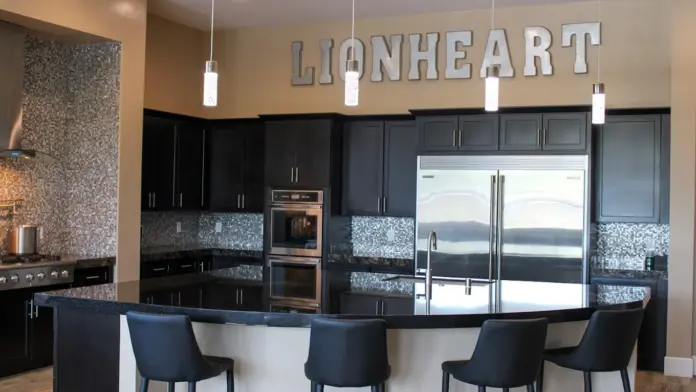
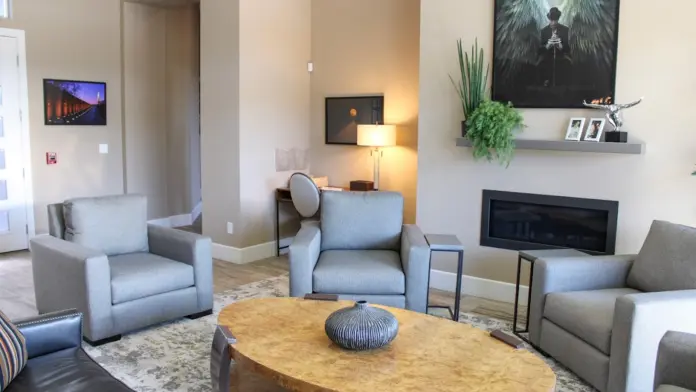
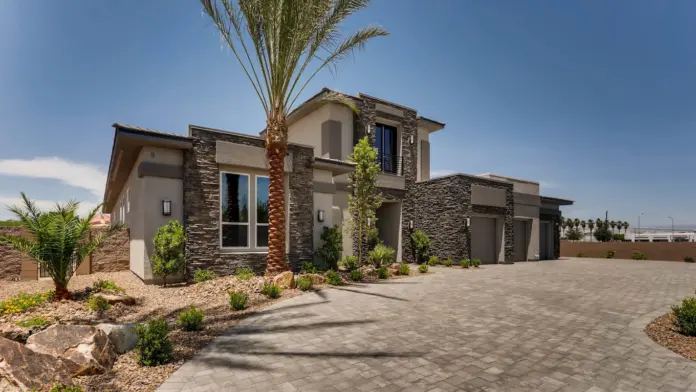
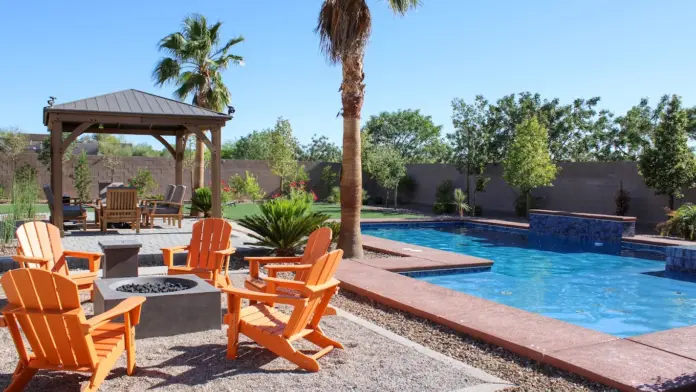





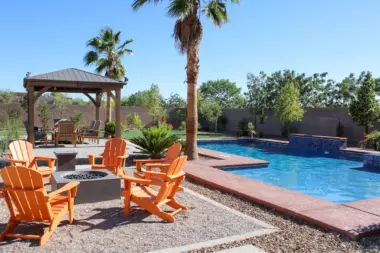
Other Forms of Payment
Private insurance refers to any kind of healthcare coverage that isn't from the state or federal government. This includes individual and family plans offered by an employer or purchased from the Insurance Marketplace. Every plan will have different requirements and out of pocket costs so be sure to get the full details before you start treatment.
Self-pay involves paying for treatment out of your own pocket. You can use savings or credit, get a personal loan, or receive help from family and friends to fund your treatment. If you don't have insurance or your insurance plan doesn't cover a specific program, self-pay can help ensure you still get the care you need.
Financial aid can take many forms. Centers may have grants or scholarships available to clients who meet eligibility requirements. Programs that receive SAMHSA grants may have financial aid available for those who need treatment as well. Grants and scholarships can help you pai for treatment without having to repay.
Military members, veterans, and eligible dependents have access to specific insurance programs that help them get the care they need. TRICARE and VA insurance can help you access low cost or no cost addiction and mental health treatment. Programs that accept military insurance often have targeted treatment focused on the unique challenges military members, veterans, and their families face.
Addiction Treatments
Levels of Care
Outpatient rehabs provide addiction treatment aligned with clients' unique schedule and evolving needs. Many programs offer evening, night, morning, and weekend services to accommodate clients who are working professionals or full-time caregivers. They also provide a full continuum of care, including psychotherapy, recovery-focused life skills training, and, for clients in alcohol and/or opioid recovery, medication assisted treatment (MAT).
Residential treatment programs are those that offer housing and meals in addition to substance abuse treatment. Rehab facilities that offer residential treatment allow patients to focus solely on recovery, in an environment totally separate from their lives. Some rehab centers specialize in short-term residential treatment (a few days to a week or two), while others solely provide treatment on a long-term basis (several weeks to months). Some offer both, and tailor treatment to the patient's individual requirements.
Clients receiving services in a rehab aftercare program are typically in the maintenance phase of their recovery, having already completed intensive inpatient treatment. These clients are generally strongly engaged in addiction counseling and recovery-focused life skills training. Case managers and care teams work with clients to identify and access the medical, mental health, and social service programs they need to promote long-term sobriety. Rehab aftercare services often include peer coaching, relapse prevention, and 12 step program induction.
Drug and alcohol addiction often takes a heavy toll on one’s body. Over time, a physical dependence can develop, meaning the body physiologically needs the substance to function. Detox is the process of removing drugs and/or alcohol from the body, a process that can be lethal if mismanaged. Medical detox is done by licensed medical professionals who monitor vital signs and keep you safe, healthy, and as comfortable as possible as you go through detox and withdrawal.
Programs
Adult rehab programs include therapies tailored to each client's specific needs, goals, and recovery progress. They are tailored to the specific challenges adult clients may face, including family and work pressures and commitments. From inpatient and residential treatment to various levels of outpatient services, there are many options available. Some facilities also help adults work through co-occurring conditions, like anxiety, that can accompany addiction.
Young adulthood can be an exciting, yet difficult, time of transition. Individuals in their late teens to mid-20s face unique stressors related to school, jobs, families, and social circles, which can lead to a rise in substance use. Rehab centers with dedicated young adult programs will include activities and amenities that cater to this age group, with an emphasis on specialized counseling, peer socialization, and ongoing aftercare.
Serving in the military is both mentally and physically challenging, and can result in trauma that persists even after combat ends. Military programs are tailored to the specific and often complex needs of active duty personnel, veterans, and military families. Clients often access these programs through the U.S. Department of Veterans Affairs (VA).
Clinical Services
Group therapy opportunities in Nevada allow you to see how successful recovery behaviors are modeled by your peers. You learn conflict resolution skills and are empowered to recognize your strengths and overcome your addiction.
Individual therapy provides you with a confidential setting to explore the complex factors that contribute to drug and alcohol addiction. Your therapist can provide tailored support and help you develop healthy coping strategies, improve self control, and build a foundation for sustainable sobriety.
During family therapy sessions, your therapist facilitates discussions that help members of the family unit understand addiction and how it affects the entire family, providing you with coping strategies that help to strengthen the family unit.
Amenities
-
Residential Setting
Staff & Accreditations
Staff

Connie Armijo
Co-CEO & Founder

Debbie Tibey
Co-CEO & Founder

Kayla Briers, LMFT, LCADC
COO & Program Director
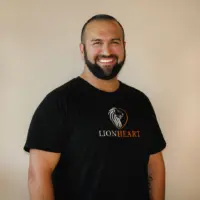
Tommy Lopez
Operations Manager
Accreditations

The Joint Commission, formerly known as JCAHO, is a nonprofit organization that accredits rehab organizations and programs. Founded in 1951, the Joint Commision's mission is to improve the quality of patient care and demonstrating the quality of patient care.
Joint Commission Accreditation: Yes
Contact Information
6565 Tomiyasu Ln
Las Vegas, NV 89120